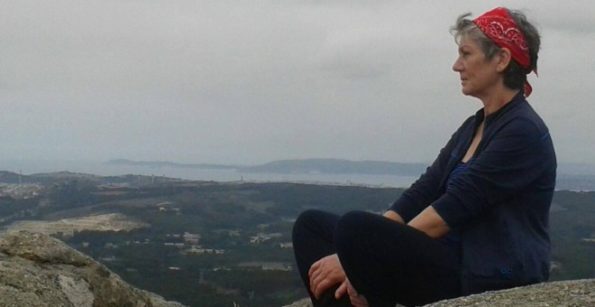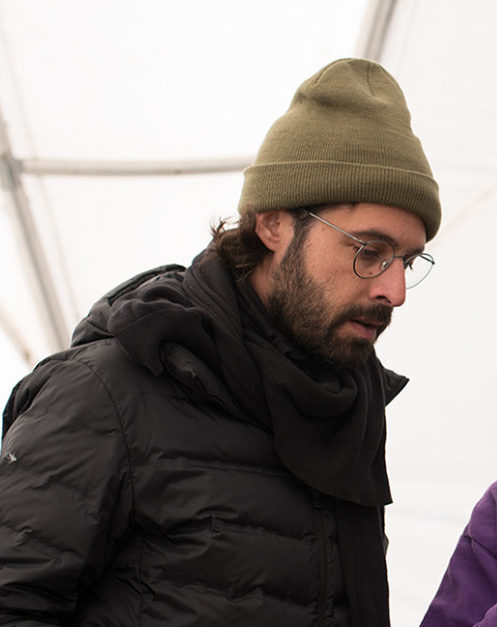Search
To search for an exact match, type the word or phrase you want in quotation marks.
A*DESK has been offering since 2002 contents about criticism and contemporary art. A*DESK has become consolidated thanks to all those who have believed in the project, all those who have followed us, debating, participating and collaborating. Many people have collaborated with A*DESK, and continue to do so. Their efforts, knowledge and belief in the project are what make it grow internationally. At A*DESK we have also generated work for over one hundred professionals in culture, from small collaborations with reviews and classes, to more prolonged and intense collaborations.
At A*DESK we believe in the need for free and universal access to culture and knowledge. We want to carry on being independent, remaining open to more ideas and opinions. If you believe in A*DESK, we need your backing to be able to continue. You can now participate in the project by supporting it. You can choose how much you want to contribute to the project.
You can decide how much you want to bring to the project.

It must be acknowledged that we demand to artists, more than to others, coherence in their thoughts, words, works and omissions. In addition to being able to project and summarize in five hundred characters what they are going to research and what they are going to produce during the next six months of their life – with enough vehemence to be considered relevant and worthy of money/trust, but with a certain detachment, since nothing less certain than being able to carry out such a project and of course, life goes on – artists must know how to construct and relate (in this order) their biography in such a way that nothing clouds a being and being in the world that justifies and legitimizes their art. In other words: in addition to requiring them to be able to weave a “why” of their art, artists (especially at the beginning of their careers and with few and obviously deserved exceptions) must have more or less clear – or at least be able to justify and give meaning – to why they have studied one career and not another, have gone to live abroad or have remained at home, or have opted to sell shoes in a shop instead of giving classes in an institute on the periphery. All this does not have to be bad, on the contrary, and I wish the same internal and external coherence would be requested to other managers of the public. The personal is political and in the realm of the symbolic everything is capable of producing meaning and, in this case, everything that an artist does or does not do, says or keeps quiet is relevant at the moment of receiving and valuing his work.
But every autobiographical story is a fiction. And we must not forget that our existence and our relationships are increasingly based on the model of Narcissus (that one of perversion and the ego, yes), to the detriment of the family and affective model of Oedipus and, therefore, within this perversion, we count and teach of ourselves only and precisely what we want to be known. And that from every conscious act and every vital decision, unforeseen and involuntary consequences are derived. Or what is the same: not all the decisions we make, nor all the projects we undertake, must be productivist or have the same meaning, or go in the same direction. “Contradiction is the light of the poet,” Federico rightly said.
An artist – everyone, in fact, but perhaps an artist even more – should be able to say openly – that is, to relate in his biography, with what that implies – that he has gone to live in Soria for love. Or Beijing. That he has returned to his parents’ house because he cannot pay the rent in the city while he finishes a project, or vice versa – much more difficult that is – that he does not earn money with his artistic work but that it does not matter because his family has many flats in the centre and does not need to pay a rent. Or that he works as a waiter or cleaning hotels because it seems as important to him to make art as to be able to buy books or go out with his colleagues without having to stop shopping that week. Or even, that after Fine Arts he has decided to study Library Science instead of a Master in London, in order to have a stable salary and a job from Monday to Friday with air conditioning that allows him to continue doing art on weekends, or occasionally, when he feels like it. Because being an artist is not a profession (cf. the recent article by Antonio Ortega in A*DESK, which I subscribe to completely hoping very much for his book) and in any case, using a wonderful expression of Godard, there are too many professionals of the profession dictating to professional artists of other things or to professional artists of nothing even, how to be and to be in the world of art. And there is no single way for such a thing.
I write all these obvious things (and I open a can of worms) knowing that they are because it seems to me that we talk a lot about affection and care, but we often do it with people we don’t like, without knowing them at all and without any intention of knowing them. And we do it always from the comfort that offers the distance of the screen and conforming to give a “like” from time to time, silent as hyenas in front of the shame of others and thinking to invest in benevolence for an eventual future’s own shame. And above all, we do it knowing that all that glitters is not gold and that, if I’m fucked, the other one will be fucked too, or it will be soon. Sad and ugly narcissus.
In the same way that it should not always be possible to develop a “why” (claiming, thus, to do for what it is, what an obvious thing, right? but how difficult to carry out), we should also allow ourselves not only contradictions and mistakes, but also forbidden lovers, phobias and phyllias, strange experiments, psychopathologies, miseries and unconfessable secrets. And denounce (or at least mistrust) cultural officials. Because making visible and assuming the injustices, cynicism and precariousness that surround us does not make us accomplices of them, quite the contrary. What makes us accomplices and defendants of the perversion that exists irremediably in all human things is to deny everything and look the other way.
It is evident that we would all be happier with good laws of patronage and real policies that give art the status of public service it should have: studio-apartments at reduced prices, more subsidies, more residences of creation remunerated with dignity, and a long etcetera. But while this world over the rainbow arrives, perhaps it would be more about living -or rather, surviving- without stepping on anyone, taking care of and treating (really) those around us and thinking about what world (and what temperatures) we leave to those who are to come. No heroics. Our representations, stories, and interpretations of what we have lived will sooner or later find a way to appear and meet others, if that is how it should be.
PS 1: Shortly after Gloria asked me for this text, I came across this article about the publication of Teresa Ramiro’s poems, in what seemed to me (in spite of the yellowish tone) resound the talks I have had with Gloria recently about her work and mine, in those Parisian afternoons of melon and beer, talking about conciliation, legitimacy, desires, frustrations, loves and hatreds.
That’s where I leave it, since it has served as a starting point for my writing (and as a title). A valoir ce qui est de droit, as they say here.
PS 2: I write this in August, during the holidays, because by the time Gloria closes the A*DESK issue she’s preparing and in which this text has been asked, I’ll be working on the costumes for a movie and I’m not sure I’ll have enough time to sit down and write with my head in good condition. I thought it was important to point this out, as conciliation is what this is all about. Surely, when the text is published, I’ll regret certain things written here, but girl… that’s what the game was about.
(Featured image: Teresa Ramiro, shellfish maker, poet and author of ‘Fundido a negro’ (Caldeirón). / Photo: XABIER MACEIRAS)

Oriol Nogues (Reus, 1984) is an artist, poet, videographer and amateur dancer. He is also a scenographer and costume designer for films and adventures of others. He has lived in Paris since 2007.
"A desk is a dangerous place from which to watch the world" (John Le Carré)